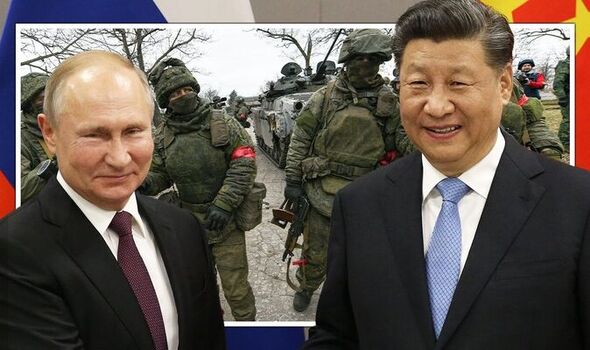By Frank Kamuntu
China hacked into a database holding the personal information of Britain’s armed forces in a significant data breach.
Britain’s Ministry of Defence (MoD) has declined to comment on any Chinese role but it said Defence Minister Grant Shapps would make a statement to parliament later to set out a “multi-point plan to support and protect personnel”.
In response to the report, Chinese foreign ministry spokesperson Lin Jian said Beijing opposed and fought all forms of cyber attack, and rejected any attempt to use the issue of hacking for political ends to smear other countries.
“The relevant remarks from UK politicians are absurd,” he said, in response to British political reaction to the report.
Britain and China have increasingly sparred over the issue of hacking, with London saying in March that Chinese hackers and a Chinese entity were behind two high-profile attacks in recent years – the targeting of lawmakers critical of China, and an assault on the country’s electoral watchdog.
It has strained ties as Britain sought to strike a delicate balance between trying to neutralise security threats posed by China while maintaining or even enhancing engagement in some areas such as trade, investment and climate change.
But there has been growing anxiety about its alleged espionage activity in Britain, particularly ahead of a national election expected later this year, and some British politicians have become increasingly vocal over the threat that they say China poses.
Mel Stride, a senior British minister, said the database was managed by an external contractor and had been taken offline quickly.
“The MoD has acted very swiftly to take this database offline. It’s a third-party database and certainly not one run directly by the MoD,” he said.
In another international news, President Vladimir Putin has been sworn in for a new six-year fifth term on Tuesday at a Kremlin ceremony that was boycotted by the United States and other Western countries, at which he said he was potentially open to nuclear talks with the West.
Putin, in power as president or prime minister since 1999, begins his new mandate more than two years after he sent tens of thousands of troops into Ukraine, where Russian forces have regained the initiative after a series of reversals and are seeking to advance further in the east.
At 71, Putin dominates the domestic political landscape. On the international stage, he is locked in a confrontation with Western countries he accuses of using Ukraine as a vehicle to try to defeat and dismember Russia.
Putin told Russia’s political elite after being sworn in that he was not shutting down dialogue with the West but that it would have to make its own choice about how to engage with his country.
He said talks on strategic nuclear stability with the West were also possible, but only on equal terms.
“We are a united and great people and together we will overcome all obstacles, we will bring to life everything we have planned. Together we will be victorious,” Putin said.
Putin in March won a landslide victory in a tightly controlled election from which two anti-war candidates were barred on technical grounds.
His best known opponent, Alexei Navalny, died suddenly in an Arctic penal colony a month earlier, and other leading critics are in jail or have been forced to flee abroad.
The United States, which said it did not consider his re-election free and fair, stayed away from Tuesday’s inauguration ceremony.
Britain, Canada and most European Union nations also decided to boycott the swearing-in, but France said it would send its ambassador.
Have An Advert Or Article You Want Us To Publish? WhatsApp: +256760530830.

